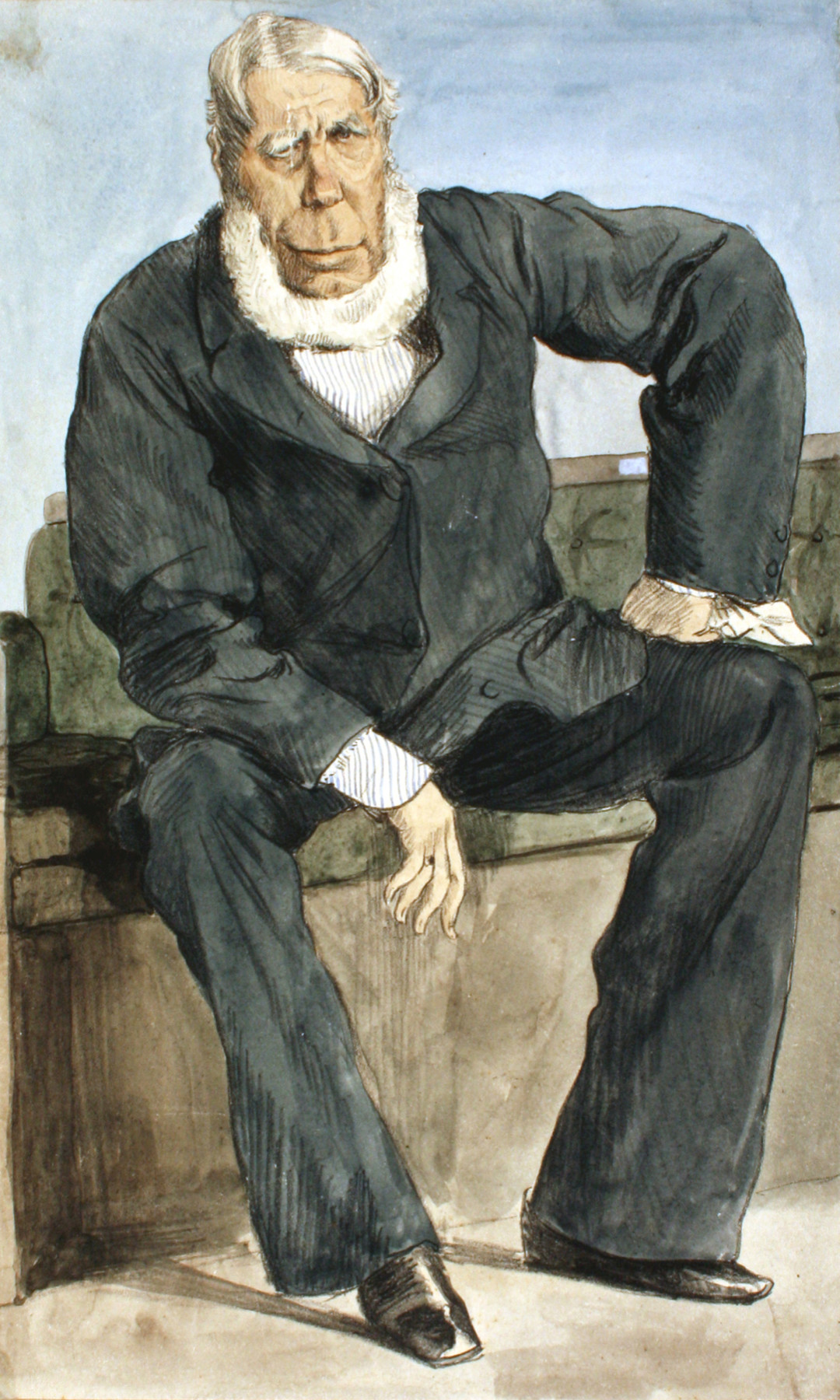
(click image to enlarge)
George Bentinck (1803-1886) was the Conservative MP for Norfolk West in the periods 1852-65 and 1871-84. Known for being bluff, outspoken and highly independent, he was nicknamed ‘Big Ben’.
On 23 December 1871, Vanity Fair published Tissot’s caricature of George Cavendish-Bentinck (1821-1891), who was then Conservative MP for Whitehaven. A cousin of ‘Big Ben’, he was known in Parliamentary circles as ‘Little Ben’.
“We are occasionally reminded that there are still left in the House of Commons a few men to represent that sincere and deep-seated Toryism which is embodied in a set of principles honestly believed by their professors to be wholesome, and forming a creed which neither time nor circumstances can modify. Mr. Bentinck - or, as he is affectionately called even by his strongest opponents, ‘Big Ben’ - is the most thorough-going exponent of that belief now in public life. His political principles are so obsolete in the present day that no party can be found ready to give effect to them, nor any chiefs willing to profess and to stand by them; but Mr. Bentinck has a sincerity of conviction in them which nothing can shake, and deserted as they have been by all, he still stands fast, and regards with undisguised scorn the men who have bartered the ancient beliefs for place and power. He never loses an occasion to attack the Liberal chiefs who are, as he believes, bringing the country to ruin, and he is as constant and even more unsparing in his denunciation of the Conservatives who have proved false to the faith he holds. The two front benches have so many weak places that he is at no loss to find daily matter for his fierce attacks. His language is plain and bold to an extent which often brings him into conflict with the rules of debate, but his reproaches are too well-founded in truth to be easily disposed of, and the leaders on both sides, although they writhe under his lash, have come to the conclusion that the only course to take is that of silent and unanswering endurance of the punishment.
‘Big Ben’ has all those generous qualities and manly tastes which we delight to attribute specially to the Englishman. He is an ardent lover of field sports, and of all the more vigorous pastimes that are pursued in this country. He delights above all things in the sea, and, holding, probably, that houses were only invented in order to keep ships' stores in, prefers to live upon it as the natural element of man. A proficient himself in practical knowledge of seamanship, and of all that appertains to navigation, he regards the ordinary fair-weather yachtsman with a pitying contempt nearly equal to that which he entertains for fair-weather politicians. He is withal, what with his qualities he could not fail to be, one of the most popular of men, and certainly the most popular of any who hold opinions so opposed as his are to the spirit and tendencies of the times.”